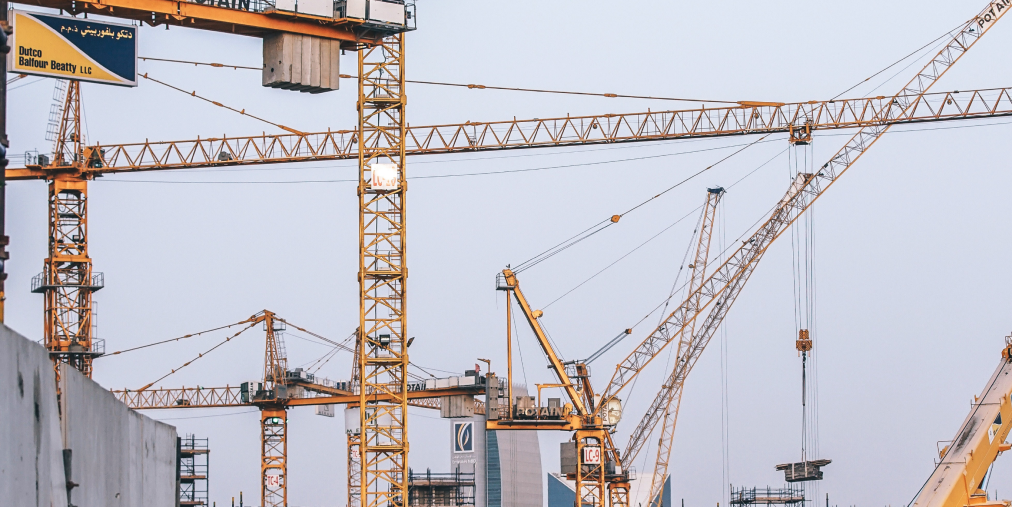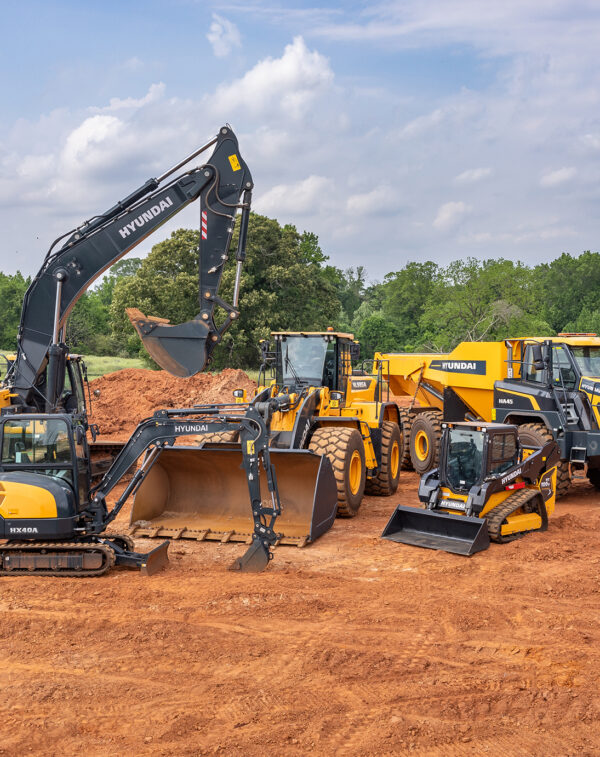Aerial Lift Rental in Tuscaloosa AL: Safeguard and Effective High-Reach Equipment
Aerial Lift Rental in Tuscaloosa AL: Safeguard and Effective High-Reach Equipment
Blog Article
Exploring the Financial Benefits of Leasing Building And Construction Devices Compared to Having It Long-Term
The choice between having and renting out building tools is crucial for economic management in the sector. Leasing offers prompt price financial savings and operational flexibility, allowing business to allocate resources much more efficiently. In contrast, ownership includes significant lasting monetary dedications, including maintenance and devaluation. As contractors evaluate these choices, the effect on capital, job timelines, and innovation gain access to comes to be increasingly considerable. Understanding these nuances is important, particularly when considering how they line up with details project demands and monetary strategies. What elements should be prioritized to make sure ideal decision-making in this complicated landscape?

Expense Contrast: Leasing Vs. Possessing
When assessing the economic implications of renting versus owning building devices, an extensive price contrast is necessary for making notified decisions. The option between leasing and owning can dramatically influence a company's bottom line, and recognizing the associated prices is important.
Renting building equipment typically entails reduced upfront expenses, permitting organizations to allot resources to various other operational requirements. Rental prices can build up over time, potentially going beyond the expense of ownership if tools is required for an extensive period.
Alternatively, owning building equipment needs a considerable first investment, along with recurring prices such as insurance coverage, funding, and depreciation. While ownership can bring about lasting savings, it likewise locks up resources and might not provide the exact same level of adaptability as renting. In addition, possessing equipment necessitates a dedication to its usage, which may not always straighten with job demands.
Eventually, the decision to rent out or possess ought to be based upon a detailed evaluation of certain project requirements, financial capacity, and long-term calculated objectives.

Upkeep Expenditures and Duties
The selection between owning and renting out building equipment not only involves financial considerations but likewise incorporates ongoing upkeep expenses and duties. Having tools calls for a significant dedication to its upkeep, that includes routine evaluations, fixings, and potential upgrades. These obligations can quickly gather, bring about unforeseen costs that can stress a spending plan.
In contrast, when leasing equipment, upkeep is typically the obligation of the rental company. This setup permits contractors to stay clear of the economic concern connected with wear and tear, as well as the logistical challenges of organizing repair work. Rental contracts typically consist of stipulations for upkeep, suggesting that service providers can concentrate on completing tasks as opposed to bothering with tools problem.
Moreover, the varied variety of devices readily available for lease makes it possible for firms to pick the most recent versions with advanced innovation, which can improve performance and efficiency - scissor lift rental in Tuscaloosa Al. By going with services, companies can avoid the long-lasting responsibility of devices devaluation and the associated maintenance migraines. Eventually, examining upkeep costs and responsibilities is crucial for making a notified choice about whether to have or rent out building and construction equipment, significantly impacting total project expenses and functional efficiency

Devaluation Influence on Ownership

A considerable element to consider in the decision to have building tools is the impact of depreciation on general possession costs. Depreciation represents the decline in worth of the equipment gradually, influenced by factors such as usage, damage, and innovations in innovation. As tools ages, its market value lessens, which can dramatically affect the owner's financial position when it comes time to market or trade the equipment.
For building and construction business, this devaluation can equate to significant losses if the tools is not utilized to its greatest capacity or if it becomes outdated. Owners must make up devaluation in their economic forecasts, which can result in greater overall expenses compared to renting out. Additionally, the tax other effects of devaluation can be complex; while it may give some tax benefits, these are commonly countered by the truth of decreased resale value.
Ultimately, the worry of devaluation highlights the significance of understanding the long-term financial commitment associated with having construction devices. Firms should very carefully evaluate exactly how frequently they will utilize the devices and the possible monetary effect of depreciation to make an educated decision concerning possession versus leasing.
Monetary Adaptability of Renting Out
Renting construction devices offers significant economic adaptability, allowing business to designate sources extra successfully. This versatility is especially essential in an industry characterized by rising and fall job needs and differing work. By deciding to rent out, businesses can avoid the substantial resources outlay required for buying tools, protecting capital for various other operational requirements.
Additionally, leasing equipment enables companies to tailor their equipment options to specific job needs without the lasting dedication linked with ownership. This suggests that businesses can quickly scale their tools supply up or down based on present and expected project needs. Subsequently, this adaptability reduces the danger of over-investment in machinery that might come to be underutilized or obsolete gradually.
One more monetary advantage of leasing is the possibility for tax benefits. Rental settlements are typically considered operating costs, allowing for immediate tax obligation deductions, unlike devaluation on owned devices, which is spread over several years. scissor lift rental in Tuscaloosa Al. This instant expense acknowledgment can even more boost a firm's cash money position
Long-Term Job Factors To Consider
When evaluating the lasting needs of a building and construction organization, the decision between owning and renting equipment comes to be a lot more complicated. For projects with prolonged timelines, buying devices might appear useful due to the possibility for reduced general costs.
The building and construction sector is progressing rapidly, with additional hints new devices offering enhanced performance and safety functions. This flexibility is especially advantageous for companies that deal with diverse projects calling for different kinds of tools.
In addition, economic stability plays a vital function. Owning equipment commonly requires considerable resources financial investment and depreciation worries, while leasing enables even more foreseeable budgeting and cash circulation. Ultimately, the option in between renting out and having should be straightened with the calculated purposes of the building and construction organization, taking into account both current and awaited job needs.
Verdict
In verdict, leasing building and construction devices uses significant economic benefits over lasting ownership. Ultimately, the decision to rent rather than very own aligns over at this website with the vibrant nature of building and construction projects, enabling for versatility and access to the most recent devices without the financial problems connected with ownership.
As devices ages, its market value decreases, which can dramatically affect the owner's monetary setting when it comes time to trade the tools or sell.
Renting out building tools provides considerable monetary flexibility, allowing firms to designate resources extra efficiently.Furthermore, renting equipment makes it possible for business to tailor their tools options to certain job demands without the lasting dedication associated with ownership.In final thought, renting building and construction equipment provides substantial economic benefits over lasting ownership. Eventually, the choice to rent out rather than very own aligns with the dynamic nature of construction jobs, allowing for versatility and access to the latest tools without the financial burdens connected with possession.
Report this page